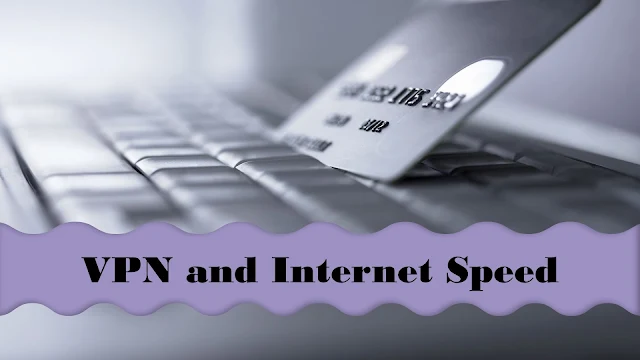- Get link
- X
- Other Apps
Virtual Private Networks (VPNs) are widely used for enhancing online privacy, bypassing geo-restrictions, and securing data over public networks. However, a common concern among users is how a VPN affects internet speed. Understanding the impact of VPNs on internet performance involves separating myths from facts. This article explores the effects of VPN usage on internet speed and provides insights into how you can optimize your VPN connection for the best performance.
Myths About VPNs and Internet Speed
Myth: VPNs Always Slow Down Your Internet Connection
Fact: While it is true that using a VPN can introduce some degree of latency due to encryption and routing, the extent of the slowdown varies. Modern VPNs, especially those using advanced protocols and high-speed servers, often minimize the impact on speed. In some cases, users may even experience improved speeds if their ISP throttles bandwidth on certain types of traffic or during peak times.
Myth: VPN Speed Issues Are Always Due to the VPN Service
Fact: VPN speed issues are not always caused by the VPN service itself. Other factors, such as the quality of your internet connection, server load, and network congestion, can also affect performance. For instance, if your base internet speed is slow, a VPN might amplify these issues rather than be the sole cause of the slowdown.
Myth: All VPN Providers Impact Speed the Same Way
Fact: The impact of a VPN on speed varies significantly between providers. High-quality VPN services with a large network of optimized servers and advanced technologies, like WireGuard or OpenVPN, can offer minimal speed reduction. In contrast, less reputable VPNs might use outdated technologies or overcrowded servers, leading to more noticeable slowdowns.
Myth: Using a VPN for Streaming Always Reduces Quality
Fact: While a VPN can sometimes impact streaming quality due to added latency, many premium VPNs are designed to handle high-bandwidth activities like streaming. They often provide dedicated servers optimized for streaming and can even bypass ISP throttling, potentially improving streaming quality compared to an unprotected connection.
Facts About VPNs and Internet Speed
Fact: VPNs Encrypt Your Data, Which Can Affect Speed
Explanation: VPNs encrypt your internet traffic to protect your privacy. This encryption process requires additional processing power and can introduce a slight delay. However, the impact on speed is often minimal with modern encryption standards and high-performance servers.
Fact: The Distance to the VPN Server Affects Speed
Explanation: The physical distance between your device and the VPN server can influence speed. Connecting to a server that is geographically closer to you usually results in faster speeds. Conversely, connecting to a server far away can increase latency and reduce overall performance.
Fact: VPN Protocols Influence Speed
Explanation: Different VPN protocols offer varying levels of speed and security. For example:
- OpenVPN: Known for its balance of speed and security, but may not be the fastest option.
- WireGuard: A newer protocol that offers high speeds and strong security.
- IKEv2/IPsec: Generally fast and stable, especially on mobile devices.
Choosing a protocol that suits your needs and provides the best balance between speed and security can help optimize your VPN performance.
Fact: High-Quality VPNs Minimize Speed Loss
Explanation: Reputable VPN providers invest in high-speed servers and optimize their networks to minimize speed loss. They often offer features like split tunneling, which allows you to route only specific traffic through the VPN, preserving speed for other activities.
Tips to Optimize VPN Performance
Choose a High-Quality VPN Provider
- Look for a VPN with a strong reputation for performance, security, and reliability. Reviews and performance tests can provide insights into how well a VPN performs under real-world conditions.
Select the Closest Server
- Connect to a VPN server that is geographically closer to your location to reduce latency and improve speed.
Use the Fastest VPN Protocol
- Experiment with different VPN protocols in your VPN client settings to find the one that offers the best speed for your needs. WireGuard, in particular, is known for its speed and efficiency.
Enable Split Tunneling
- Use split tunneling to route only specific applications or traffic through the VPN. This can help preserve speed for activities that don’t require VPN protection.
Keep Your VPN Client Updated
- Ensure that you are using the latest version of your VPN client. Updates often include performance improvements and bug fixes.
Check for Network Congestion
- Test your internet speed at different times of the day to determine if network congestion is affecting your speed. Sometimes, high traffic periods can impact performance.
Test Different Servers
- If you experience slow speeds, try connecting to different servers within your VPN provider’s network. Some servers may be less crowded or optimized for better performance.
Conclusion
Using a VPN can have an impact on internet speed, but this effect varies based on several factors, including the quality of the VPN service, the server location, and the chosen protocol. By understanding the myths and facts about VPN performance, you can make informed decisions about selecting and using a VPN. With the right VPN and optimization strategies, you can enjoy enhanced privacy and security without significantly compromising your internet speed.

Comments
Post a Comment